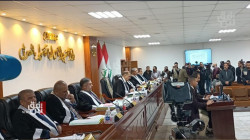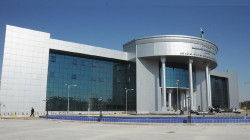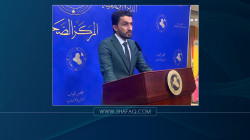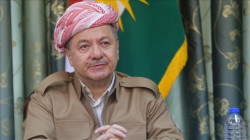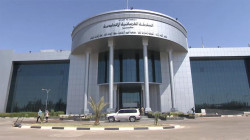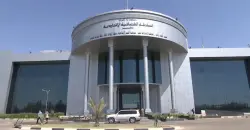Iraq's federal court: Is the constitution's interpreter constitutional?
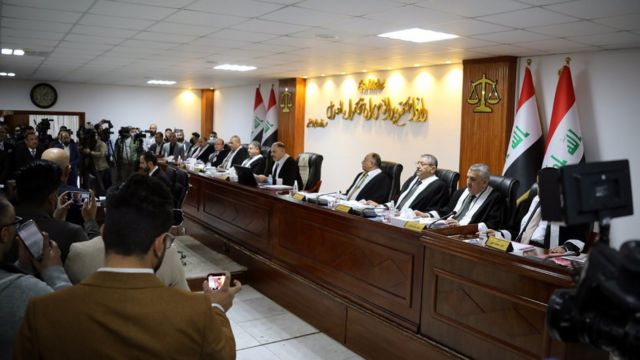
Shafaq News / Over the past two decades, political elites have overcome the constitution's ambiguities and perceived shortcomings in a variety of ways. Most consequentially, the Federal Supreme Court has played the role of arbiter and offered interpretations of key clauses. Over the course of its history, the court has issued a flurry of landmark rulings that redefined the parliamentary quorum required to elect the president, upended the legal basis of the Kurdistan Regional Government's oil and gas industry, and -most recently- blocked payments from state coffers funding the semi-autonomous region.
Many believe that such decisions erode public reverence toward the constitution and the court because they appear to go against democratic and federal norms; the cornerstones of Iraq's modern polity.
While some cast huge red flags on the political undertones of the court's rulings, others argue that the court itself is fundamentally inconsistent with the constitution.
"It is unfair for the people who need to survive to bear the problems between the governments of Baghdad and Erbil, and starving part of the people is unconstitutional, even contrary to it because there are equal rights for all Iraqi people under the constitution, and not giving the rights of this part is against it," said Judge Ruzgar Mohammed Amin.
Amin added, "The Federal Court Law fundamentally violates the constitution, which stipulates that the court must be made up of judges, Islamic law scholars, and legal jurists, but this has not yet been codified."
"The outstanding issues between Baghdad and Erbil must be resolved through constructive dialogue and reference to constitutional rules, and the judiciary must stand in the middle and take the humanitarian aspect and justice before the legal side into account in its rulings."
"There is no doubt that the constitutional courts have a political dimension in decision-making in addition to the legal aspect because they deal with the constitution, which is a political, social, economic, and legal document. One of the basic tasks of the court is to protect rights and freedoms, to defend constitutional principles, and to protect the rights of the Iraqi citizen wherever they may be regardless of their nationality, religion, or sect," he explained.
It is noteworthy that the Federal Supreme Court declared that the Federal Council of Ministers' sending of funds to pay the monthly salaries of employees and workers in the public sector in Kurdistan violates the Constitution.
Kurdistan's Regional Government (KRG) described the decision as "unjust," a flagrant violation of the constitution, and at odds with the agreement to establish the Iraqi government, while calling on the federal government to refuse to accept the decision and to keep its promise to send the Region its financial obligations.
On the other hand, Kurdish citizens voiced their displeasure with the Iraqi Federal Court's decision, calling it "unfair."
Also, the President of the Kurdistan Region, Nechirvan Barzani, considered the decision of the Federal Court of the illegality of the Iraqi government funding the salaries of the region's employees, unfair, pointing out that this decision damages the political process and the agreement on which the new Iraqi government was formed.
A history of controversy
The Federal Supreme Court was formed per Article 44 of the Iraqi State Administration Law for the Transitional Period, to fill the judicial gap that accompanied the post-2003 phase. It served as the interim constitution. The truth of the controversy over the court's legitimacy lies in the adoption of the Iraqi constitution later in 2005. The court continued to practice its activities, according to legal expert Muhammad al-Obaidi.
Al-Obaidi clarified that the court's most significant functions include clarifying the laws and deciding on their legality, especially those related to the Federal and Regional governments. Additionally, the Federal Court's most recent ruling, which halted the payment of salaries to Kurdistan's employees, aroused debate after MP Mustafa Sanad requested the court to hear his case."
He continued, "Such decisions have taken a political aspect, as they affect a segment of employees to pressure the regional government, and political leaders should settle outstanding issues in a way that does not affect the livelihoods of citizens regardless of nationality, race, or religion."
MP Mustafa Jabbar Sanad announced that "the Federal Supreme Court (the highest judicial authority in the country) decided to cancel all decisions related to the transfer of funds to Kurdistan in violation of the law and contrary to the constitution based on the lawsuit filed by him in this regard."
He added that the decision of the Federal Court will be a criterion and a legal reference for all subsequent governments, including the current one, in the unconstitutionality of transferring funds to Kurdistan, stressing that this lawsuit came based on a complaint he filed and won.
Meanwhile, the Federal Supreme Court stated regarding the decision, that it decided to rule the invalidity of the decisions issued by the Council of Ministers numbered (194) on June 15, 2021, (226) on July 6, 2021, (257) on August 3, 2021, (335) on September 2, 2021, (401) on November 2, 2021, and (8) on January 11, 2022, as a final and binding judgment for all authorities based on Articles (93/III and 94) of the Constitution of the Republic of Iraq of 2005 and Articles (4/III and 5/II) of the Federal Supreme Court Law No. (30) of 2005 as amended by law No. (25) of 2021.
Furthermore, the Federal Supreme Court had previously stirred controversy after it rejected a lawsuit to dissolve parliament filed by the Sadrist movement and independent political parties on September 7, 2022, for "lack of jurisdiction", noting that the stability of the political process in Iraq requires adherence to the provisions of the constitution.
The Federal Court's interpretations, together with several rulings rendered at various times, partially helped to define the country's political landscape. One of its most significant decisions, which served as the initial step to invalidate the trilateral alliance between Muqtada al-Sadr, Masoud Barzani, and Muhammad al-Halboosi, was the rejection of Kurdistan's Democratic Party's (KDP) candidate Hoshyar Zebari, which came after a complaint brought before the court by members of the Patriotic Union of Kurdistan (PUK) against his candidacy.
Among its decisions that enraged Muqtada al-Sadr was its interpretation of the quorum for the election of the President of the Republic, which mandates that the House of Representatives convenes with two-thirds of its members, and this is what prompted al-Sadr's supporters to protest in front of the Supreme Judicial Council for a week before withdrawing on August 23, 2022.
Crisis resolution
Legal expert Amir Al-Daami, said that "the recent decision of the Federal Court was based on Decision 59 regarding the funds collected from Kurdistan's oil export revenues without reference to the central treasury," noting that "this decision stipulated that these funds be returned to the state treasury of the federal government in exchange for sending funds from the federal government to Kurdistan."
"However, KRG did not abide by this decision, and oil sales remained out of the control of the central government and SOMO company, which is in charge of exporting oil. Therefore, this decision was based on the previous decision, that the funds can only be transferred after the settlement of the funds for the sale of the region's oil."
He continued, "Until the oil and gas law is passed, the situation will persist. Additionally, everything that occurs outside the Federal Court's ruling is a custom and an agreement, and we are accustomed to political conventions and agreements that go beyond the bounds of the law. However, as of right now, the Federal Court's ruling is enforceable under the terms of Article 94 of the Constitution, and the dispute between Erbil and Baghdad must be resolved using the oil issued in prior years."
Additionally, officials in Kurdistan claimed that it would be extremely challenging to pay the salaries of hundreds of thousands of workers and pensioners, without the monthly financing Baghdad delivers to the region.
From internal financial revenues in Kurdistan, KRG supplies the remaining funds to pay salaries.
Additionally, Kurdistan's Council of Ministers has confirmed several times that the federal government has not sent the region's monthly dues, amounting to 200 billion dinars, for several months since 2020.
According to the KRG's Ministry of Finance and Economy, the amount needed to pay the total monthly salaries of Kurdistan's employees is approximately $616 million. This money is typically obtained as follows: $350 million from oil revenues, $128 million from domestic sources, and $138 million from funds sent by the federal government (200 billion dinars).
It is noteworthy that former Prime Minister Mustafa al-Kadhimi decided in June 2021 to disburse 200 billion dinars as an advance allocated to pay the monthly salaries of Kurdistan's employees.
